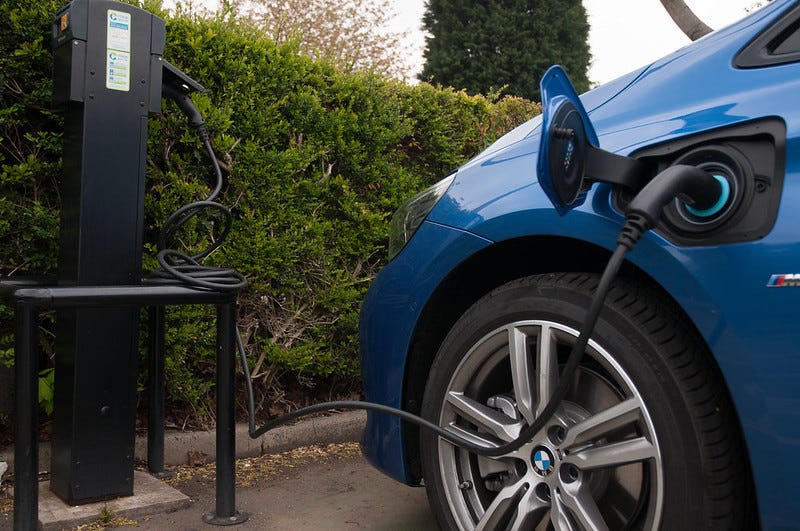News briefs: Brits way behind in installing electric-car charging stations
Plus, the South of France to become a very hot hotspot and scientists have taught spinach to send emails

Blimey! Brits way behind with electric-car charging stations
Britain needs to put the pedal to the metal if it is to install enough electric-vehicle charging stations to handle demand when the sale of gasoline and diesel cars are banned in 2030, says a new study. Installations need to increase to 35,000 points a year, from 7,000 now, according to a report by the Policy Exchange think tank, Bloomberg reports. The central government recently announced about $27.4 million in extra funding for an on-street charging program that would double the rollout of points, but the new outlets still do not approach the pace needed, the report says. Without a much more accelerated introduction, said Ed Birkett, a researcher at Policy Exchange and co-author of the report, “EV charge points will remain uneven, with fewer in rural areas.” Meanwhile, China installed an astounding 112,000 connectors just in December alone, which is more than the U.S. has introduced since 2010.
Southern France set to fry if climate change continues
Sending an alarming message to tourist areas everywhere, France’s national weather service has warned that the south of France — home to such, um, hotspots as St. Tropez, Nice and Cannes — is on track to heat up nearly 3°C. (about 5°F.) above pre-industrial levels by 2070. And that’s even when currently envisaged efforts to reduce emissions are included — if no improvements are made, temps could soar by 4.5°C., said a government agency report quoted by France24.com. In the summer of 2019, Météo-France said, temperatures near the coastal city of Montpellier reached a sizzling 46°C. (115°F.), a national record. The heatwave was “a direct consequence of climate change,” said Météo-France CEO Virginie Schwarz in a statement. “All observations made across the planet confirm an unprecedented acceleration of climate change.”
And in other green news, scientists have taught spinach to send emails
Is your inbox overwhelmed? Well, you’d better hope you aren’t on the distribution list from spinach plants that have been engineered to detect pollution — and then send an email! Through nano techniques, reports EuroNews.com, engineers at the Massachusetts Institute of Technology have transformed the popular veggie so it, in the first experiments, can detect explosive materials. The leafy greens are then able to wirelessly relay this information back to the scientists. In the future, the researchers predict, the plants will be able to sniff out a wider range of pollutants. “Plants are very good analytical chemists,” said the study’s lead author, Prof. Michael Strano. “They have an extensive root network in the soil, are constantly sampling groundwater, and have a way to self-power the transport of that water up into the leaves. This is a novel demonstration of how we have overcome the plant/human communication barrier.”
